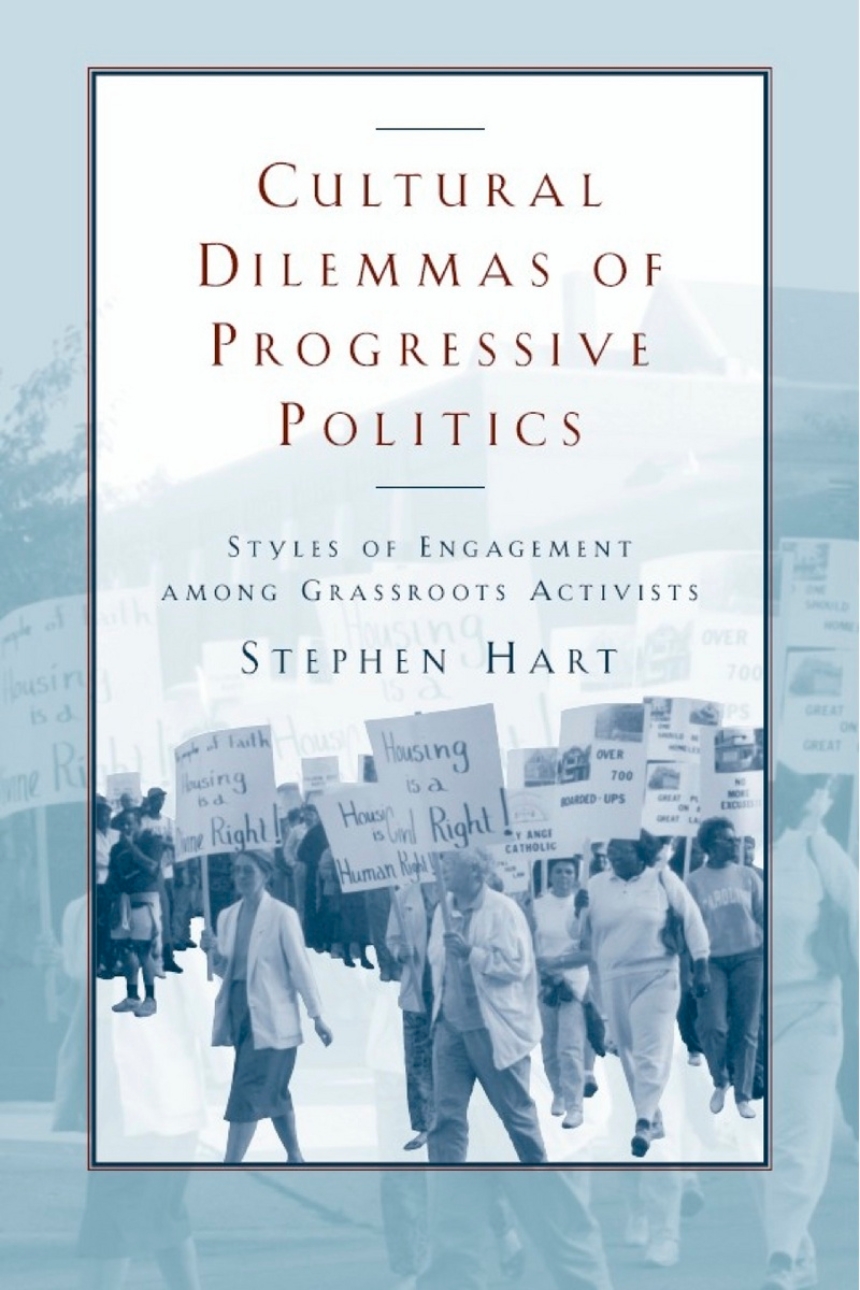Cultural Dilemmas of Progressive Politics
Styles of Engagement among Grassroots Activists
9780226318189
9780226318196
Cultural Dilemmas of Progressive Politics
Styles of Engagement among Grassroots Activists
Why have conservatives fared so much better than progressives in recent decades, even though polls show no significant move to the right in public opinion? Cultural Dilemmas of Progressive Politics highlights one reason: that progressives often adopt impoverished modes of discourse, ceding the moral high ground to their conservative rivals. Stephen Hart also shows that some progressive groups are pioneering more robust ways of talking about their issues and values, providing examples other progressives could emulate.
Through case studies of grassroots movements—particularly the economic justice work carried on by congregation-based community organizing and the pursuit of human rights by local members of Amnesty International—Hart shows how these groups develop distinctive ways of talking about politics and create characteristic stories, ceremonies, and practices. According to Hart, the way people engage in politics matters just as much as the content of their ideas: when activists make the moral basis for their activism clear, engage issues with passion, and articulate a unified social vision, they challenge the recent ascendancy of conservative discourse.
On the basis of these case studies, Hart addresses currently debated topics such as individualism in America and whether strains of political thought strongly informed by religion and moral values are compatible with tolerance and liberty.
Through case studies of grassroots movements—particularly the economic justice work carried on by congregation-based community organizing and the pursuit of human rights by local members of Amnesty International—Hart shows how these groups develop distinctive ways of talking about politics and create characteristic stories, ceremonies, and practices. According to Hart, the way people engage in politics matters just as much as the content of their ideas: when activists make the moral basis for their activism clear, engage issues with passion, and articulate a unified social vision, they challenge the recent ascendancy of conservative discourse.
On the basis of these case studies, Hart addresses currently debated topics such as individualism in America and whether strains of political thought strongly informed by religion and moral values are compatible with tolerance and liberty.
Read an excerpt.
304 pages | 1 halftone, 1 line drawing, 2 tables | 6 x 9 | © 2001
Political Science: American Government and Politics, Political and Social Theory
Sociology: Social Change, Social Movements, Political Sociology
Table of Contents
Preface
Acknowledgments
I. How We Engage in Politics and Why It Matters
1 Varying Styles of Political Activity
II. Congregation-Based Community Organizing
2 How Congregation-Based Community Organizing Works
3 The Religious and Political Perspective of Community Organizing
4 Stories and Practices of Community Organizing
Conclusion to Part II: Expansive and Constrained Discourse in Community Organizing
III. Human Rights and Amnesty International
5 The Human Rights Tradition and Amnesty International
6 Cultural Work in Amnesty International
Conclusion to Part III: Dilemmas in Human Rights Discourse
IV. How Should We Talk about Politics?
7 Individualism and Its Discontents
8 Integrating Culture and Politics
Appendixes
A. Results from Two National Surveys of Congregation-Based Community Organizing
B. A Catholic Framework for Economic Life (U.S. Catholic Conference)
C. The Declaration of the Rights of Man and the Citizen (Republic of France)
D. The Bill of Rights and Supporting Documents (United States of America)
E. The Universal Declaration of Human Rights (United Nations)
F. Excerpts from the Statute of Amnesty International
Notes
Index
Acknowledgments
I. How We Engage in Politics and Why It Matters
1 Varying Styles of Political Activity
II. Congregation-Based Community Organizing
2 How Congregation-Based Community Organizing Works
3 The Religious and Political Perspective of Community Organizing
4 Stories and Practices of Community Organizing
Conclusion to Part II: Expansive and Constrained Discourse in Community Organizing
III. Human Rights and Amnesty International
5 The Human Rights Tradition and Amnesty International
6 Cultural Work in Amnesty International
Conclusion to Part III: Dilemmas in Human Rights Discourse
IV. How Should We Talk about Politics?
7 Individualism and Its Discontents
8 Integrating Culture and Politics
Appendixes
A. Results from Two National Surveys of Congregation-Based Community Organizing
B. A Catholic Framework for Economic Life (U.S. Catholic Conference)
C. The Declaration of the Rights of Man and the Citizen (Republic of France)
D. The Bill of Rights and Supporting Documents (United States of America)
E. The Universal Declaration of Human Rights (United Nations)
F. Excerpts from the Statute of Amnesty International
Notes
Index
Awards
Gustavus Myers Ctr/Study of Human Rights: Gustavus Myers Center Outstanding Book Award
Won
